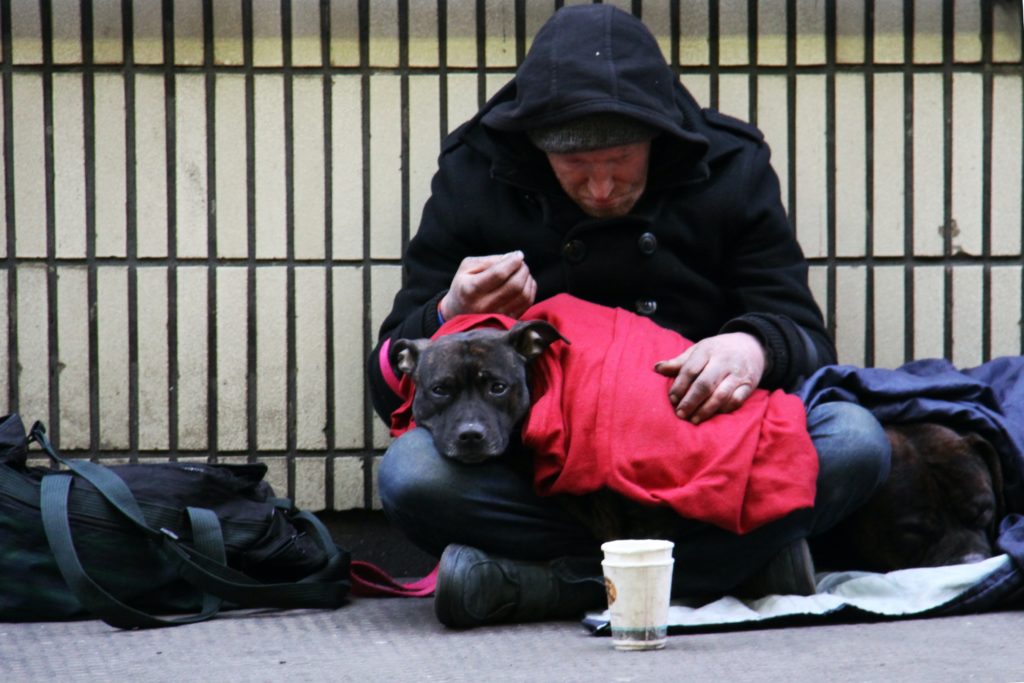
As the COVID-19 pandemic rages, it’s highlighting unique pressures on certain groups like Canada’s seniors, Indigenous communities, and people experiencing homelessness.
UBC housing expert Penny Gurstein, a professor in the school of community planning who studies the impact of planning on marginalized communities, and her collaborator Carolyn Whitzman, an adjunct professor in the Institute of Feminist and Gender Studies at the University of Ottawa, are calling for policy changes after the pandemic, along with more than 150 organizations and individuals across Canada. They share their views in this Q&A.
How has COVID-19 impacted marginalized or at-risk individuals across Canada?
Penny Gurstein: It is impossible to isolate at home without a home. COVID-19 has exposed the inequities and risks in our housing system. It is not just the homeless who are now at risk, but those who are inadequately and precariously housed, such as renters with no income to pay their next month’s rent, who may ultimately face evictions.
Carolyn Whitzman: In order to shelter safely against this pandemic, you require safe shelter. Emergency shelters for homeless people have not been able to provide adequate isolation. Violence against women and children has increased as many are in close quarters with their abusers. The failings of long-term care and other facilities for seniors and people with disability have been exposed.
You’ve just written a Call to Action recommending some pretty ambitious changes post-pandemic. Why is it important for government, planners and decision makers to start thinking about this now?
Gurstein: Housing for all that is affordable, adequate, secure and accessible is critical to the social and economic health of communities. We are calling on the federal government to invest in critical changes to our housing system that will redress past inequities and make Canadian society more resilient in the future.
Whitzman: It is becoming increasingly clear that a national infrastructure stimulus plan will be needed to get the economy moving again. Wartime Housing Limited, the forerunner of the CMHC, was created during World War II to address deficiencies in housing affordability, security and overcrowding that were threatening Canada’s war effort. Without adequate, affordable permanent housing, efforts to contain and end this pandemic will be threatened.
What big changes need to happen after the pandemic is over?
Gurstein: COVID-19 has shown us how all levels of Canadian governments can develop policies and implement them in ways that are consultative, timely and effective. We need to continue that momentum to address some of our society’s most intractable problems. Homelessness and housing uncertainty can be eradicated if the government will is there.
Whitzman: The current National Housing Strategy, while laudable in many ways, does not provide adequate national steering to provide a decent, affordable home for all Canadians by 2030, which is its aim. Many households are threatened by unemployment and business failure and are unable to pay rent or mortgages. Without a long-term solution that tackles all aspects of the housing market, there is a well-grounded concern that real estate investment trusts (REITs) will scoop up multi-unit housing, as they did during the 2008 global financial crisis, and increase homelessness and housing stress for Canadians. We need a refreshed national housing strategy that can nimbly respond to those threats and take advantage of opportunities, in order to make “housing for all” a reality by 2030.
Is there anything else you’d like to add?
Whitzman and Gurstein: It has been tremendously encouraging to see the rapid national response to the call to action over the past 10 days. Organizations and researchers across the country are ready to collaboratively transform housing policy and production. Together we can improve energy efficiency as well as equity in affordable housing outcomes.